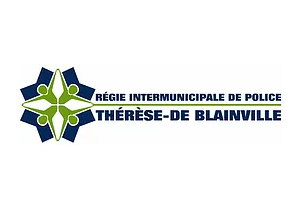Pour les non-juristes aussi?

Karim Renno
2016-07-27 14:15:00

En cette ère de multidisciplinarité grandissante, la question revêt un intérêt très particulier.
Au niveau factuel, on retiendra de cette affaire qu’une des parties défenderesses demande la disqualification de l'étude d'avocats qui représente le Demandeur au motif que le Défendeur en question a rencontré un aviseur d'affaires qui travaille pour ladite étude afin d’obtenir des conseils. Ce qui complique la situation juridique est le fait que ledit aviseur n'est pas avocat.
Le juge Hamilton doit donc déterminer si les règles relatives aux conflits d'intérêts s'appliquent aux membres d'une étude qui ne sont pas juristes.
Après une analyse soignée, le juge Hamilton en vient à la conclusion qu'il faut répondre à cette question par l'affirmative. Il indique à cet égard que la multi-disciplinarité commande une telle application des règles de conflit:
''(17) The rules on conflict of interest in Canada flow from the duties inherent in the lawyer-client relationship. ''
''(18) Those rules were developed by the Supreme Court of Canada in MacDonald Estate v. Martin, R. v. Neil, Strother v. 3464920 Canada Inc. and Canadian National Railway Co. v. McKercher LLP. These cases arose in common law jurisdictions. ''
''(19) The role of lawyers in Québec is similar to their role in the common law system. As a result, the common law case law is largely applicable in Québec. As mentioned above, the Code is a codification of those cases. ''
''(20) The result is that, in principle, the conflict rules in the Code and in the case law apply to lawyers and not to non-lawyers. Moreover, they apply to lawyers and not to law firms. ''
''(21) Does this mean that those rules have no application to the non-lawyer employee of a law firm? ''
''(22) The Court does not believe so. ''
(…)
''(35) In the Court’s view, it is not appropriate to take a narrow view of conflicts of interest because of the public interest and the need to uphold public confidence in the system. ''
''(36) For that reason, the Court concludes that the conflict of interest rules applicable to lawyers are generally applicable to someone in Lortie’s position. Dentons holds him out as part of the firm. He clearly holds a senior position within Dentons and he is likely to meet with clients and to receive sensitive business information from clients. The Court concludes that these clients and this information deserve the same protection as the confidential information shared with a lawyer at Dentons in the course of a lawyer-client relationship. A reasonable client would certainly expect that.''
Il est par ailleurs à noter que l’Honorable juge Yves-Marie Morissette a accordé la permission d’en appeler du jugement du juge Hamilton dans Dentons Canada l.l.p. c. Bazinet (2016 QCCA 885). L’appel sera entendu le 7 octobre prochain.
Certainement une affaire à suivre!











